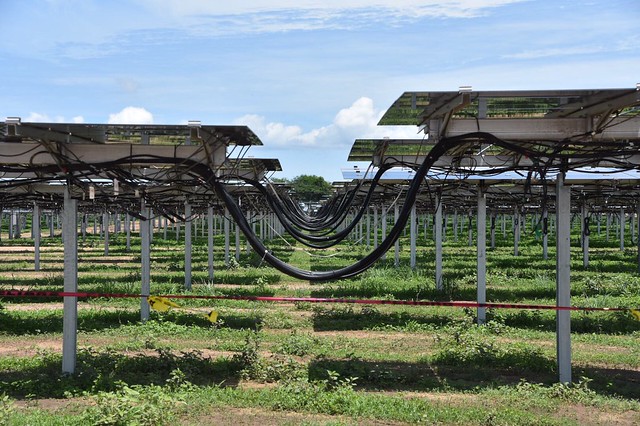New BreatheLife member Honduras, which joined the campaign on World Environment Day, is embarking on new measures to improve its air quality.
The country with a population of 9.1 million is working with partners to strengthen air quality management, update vehicle emissions regulations and deploy improved cookstoves.
Honduras is already a solar energy star, one of the major producers of solar energy in Central America, but it admits that its air quality plan, in place since 2007, needs updating.

In 2015, Honduras ranked as the second largest producer of solar electricity in Latin America. Although it has now been unseated by Mexico, Honduras still generates about 12% of its energy from solar PV. Photo by OFID/CC BY-NC-ND 2.0
That plan, the National Plan for Air Quality Management, developed with the Clean Air Institute and the support of the World Bank, presented suggestions regarding urban transport, land use planning, cleaner production, improvements to energy efficiency and opportunities to develop strategies to reduce air pollution in the capital Tegucigalpa up to 2030.
Now, the country has committed to establishing new air quality standards, beginning with a draft regulation to update vehicle emissions regulations, currently in development.
“Honduras recognizes that air pollution is a significant risk to our citizens’ health and the environment. We are taking action to improve our air quality. The country aims to establish new air quality standards and air quality monitoring network to strengthen its efforts to beat air pollution,” said Director, Pollutant Control and Study Center/Ministry of Energy, Natural Resources, Environment and Mines, Lic. Carlos Thompson.
Fixed sources of air pollutants, such as those from industrial facilities, have been regulated since 2011 with laws that include limits on ambient air pollution in sensitive zones.
Regulations are also in place to prevent agricultural burning by cane producers.
To improve air household air quality in the country, Honduras has joined an inter-institutional committee that manages the issue of improved cookstoves, and, in 2018, participated in research led by the Pan American Health Organization into the use of energy in the home.
Honduras conducts periodical air quality monitoring in some areas, and wishes to improve and continue this monitoring, as well as improve air quality standards, with support.
It is currently working on strengthening its management of air quality through a proposal to Mexico’s National Institute of Ecology and Climate Change (Instituto Nacional de Ecología y Cambio Climático) and the Mexican Agency for International Cooperation for Development (AMEXCID – Agencia Mexicana de Cooperación Internacional para el Desarrollo).
BreatheLife welcomes Honduras as it expands its air quality management efforts and inspires others as a major player in renewable energy in the region.
Follow Honduras’ clean air journey here.
Banner photo by ruifo/CC BY-NC-SA 2.0